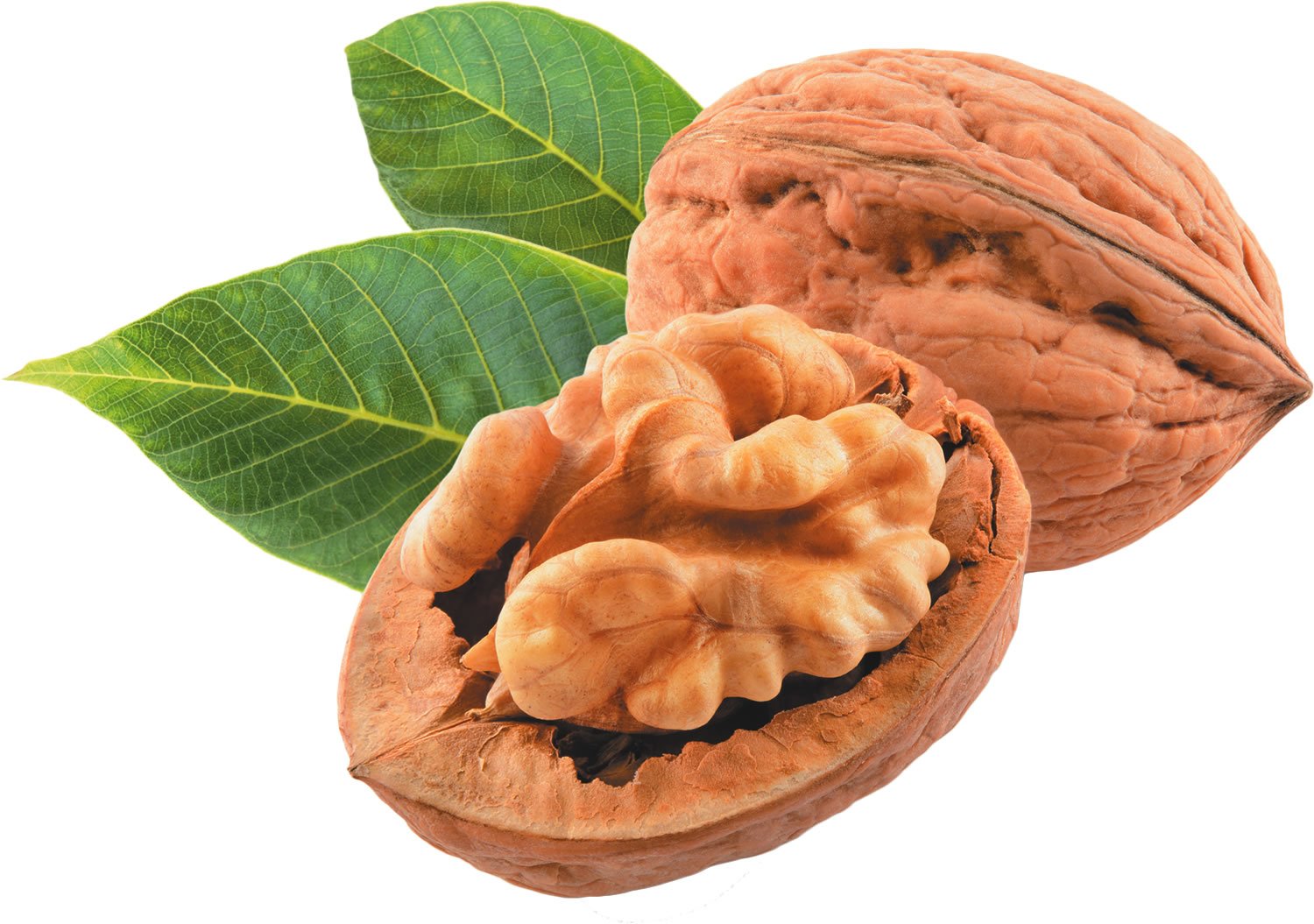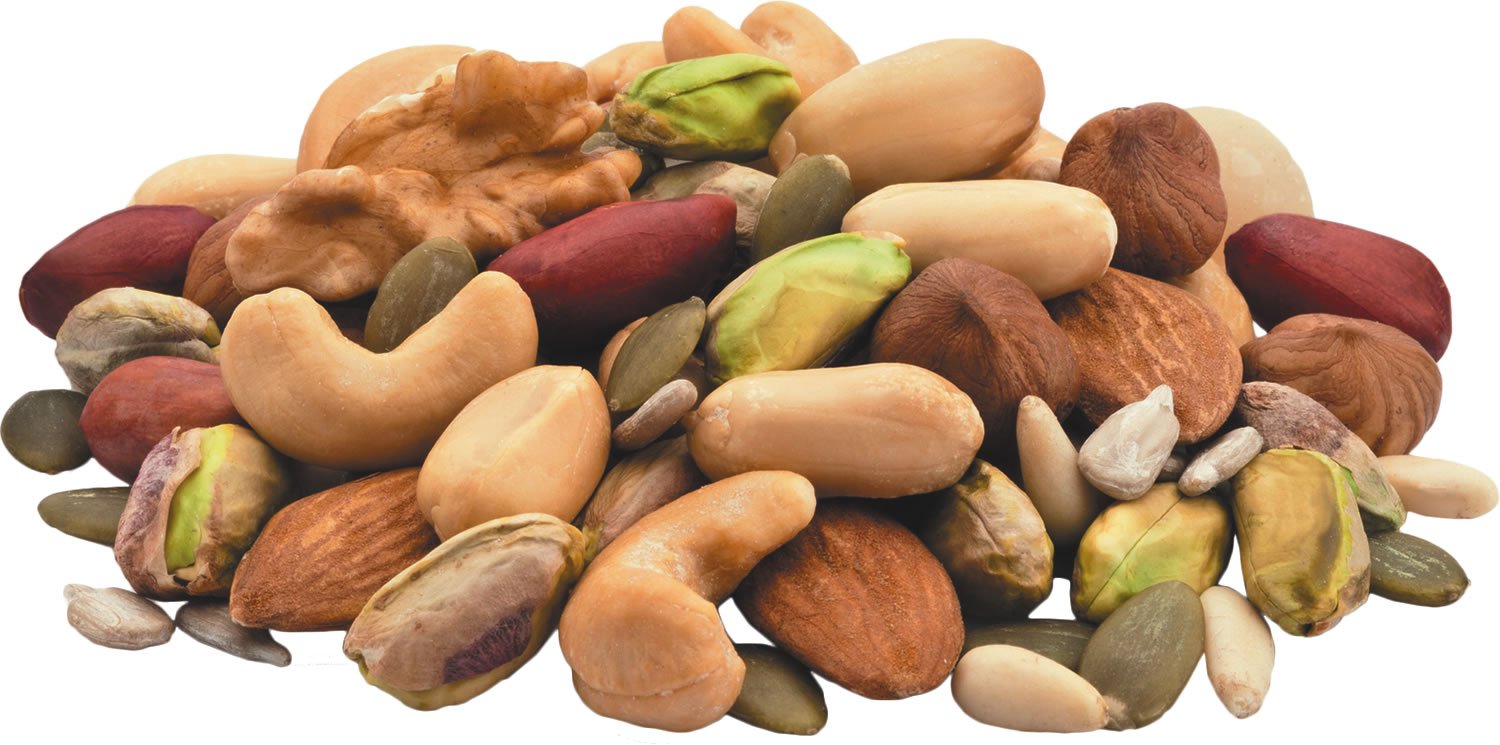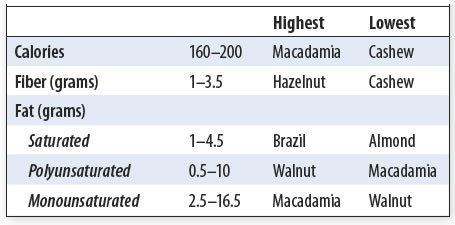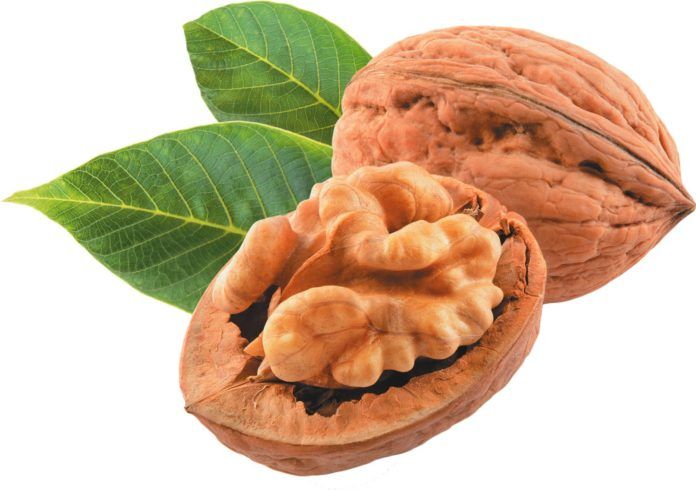Image © anna1311 | Getty Images

Nuts are a source of unsaturated fats and fiber as well as protein. Nuts are a good source of vitamin E and magnesium—which most Americans don’t get enough of—and other essential vitamins and minerals. Nuts also contain a variety of plant chemicals which some research has linked to reduced risk of chronic diseases. In short, nuts deliver a lot of nutrition in a small package.
But there is more to the health benefits of nuts and nut butters than simply the effects of individual nutrients. You get higher dietary quality and the most benefit from eating nuts if you consume them instead of unhealthy choices like chips, pretzels, crackers or cereals made with refined carbohydrates.

Types of Nuts: Tree nuts include Brazil nuts, cashews, hazelnuts (filberts), macadamias, pecans, pistachios and pine nuts. Walnuts, almonds and pecans, are technically “drupes,” consisting of a fleshy fruit on the outside and a hard-shelled pit (enclosing a soft nut or seed) on the inside. Peanuts are legumes, but have a nutritional benefits similar to tree nuts.
Health Benefits: Much evidence for the health benefits of nuts comes from observational studies that link moderate nut consumption to lower rates of chronic diseases, particularly heart disease. One possible explanation is that people improve their diet quality from eating nuts (and their healthy fats, fiber and protein) in place of less healthy foods. Alternatively, people who live healthier lifestyles are more likely to consume nuts than less-health conscious people. Studies try to account for the influence of these lifestyle factors, but this still doesn’t allow associations to prove cause and effect. However, this long-term observational evidence is supported by many shorter-term clinical trials that demonstrate the health benefits of nuts on risk factors for chronic disease such as blood cholesterol, as well as one large clinical trial in Spain showing that a nut-rich diet lowered cardiovascular events and diabetes.

Here are the major benefits associated with nut consumption:
Heart Health: Studies in the 1990s first drew the connection between eating nuts and lower rates of heart disease. People who eat nuts regularly have lower blood levels of total cholesterol, “bad” LDL cholesterol and triglycerides (particles that transport fats through the body), effects that have been confirmed in trials. This is likely because of the high contents of unsaturated fats in nuts, which are known to improve cholesterol profiles, and the use of nuts to replace foods high in less healthy fats, starch and added sugar.
Diabetes: People who eat nuts regularly are less likely to be diagnosed with diabetes. The reasons are not completely understood, but some research suggests that the fiber in nuts could help the body control blood sugar levels. A large clinical trial in Spain found that a Mediterranean diet supplemented with nuts reduces the rates of type 2 diabetes.
Healthy Weight: Nuts are rich in healthy oils, but that also means they are dense in calories. Depending on the type, nuts contain roughly 160 to 200 calories per ounce, although research has shown that up to 20% of nut calories may not be absorbed because some small nut particles pass through the gut undigested. In meta-analyses of clinical trials, people who were assigned to eat nuts regularly, and were provided these nuts for free, did not gain weight compared to controls. In fact, some research shows that nut-eaters tend to gain less weight as they age. This may be because nuts are filling, and therefore people may eat less of other foods over the course of the day. It could also be due to other complex effects of the nutrients, fiber and healthy fats on your body’s weight control.
How To Eat Them: For most people, 1 to 2 one-ounce servings of nuts per day is a reasonable goal, especially when used to replace less healthy foods. While the nutrient profiles of nuts vary by type, they are more similar than different, so you can just eat the kinds you like. Be mindful of additives like salt and sugar that producers often include in processed nuts.
Nuts can serve as a between-meal snack or incorporated into meals like breakfast (add to yogurt or cereals), salads, stir-fries, or sauces with pasta. In the Dietary Guidelines for Americans, one-half ounce of nuts or seeds counts as 1 ounce-equivalent of other protein foods, like meat.
Nut Nutrition 101
Nutritional information about popular nuts per 1-ounce serving: Brazil, cashew, hazelnut, macadamia, peanut, pecan, pine nuts and walnut.

























